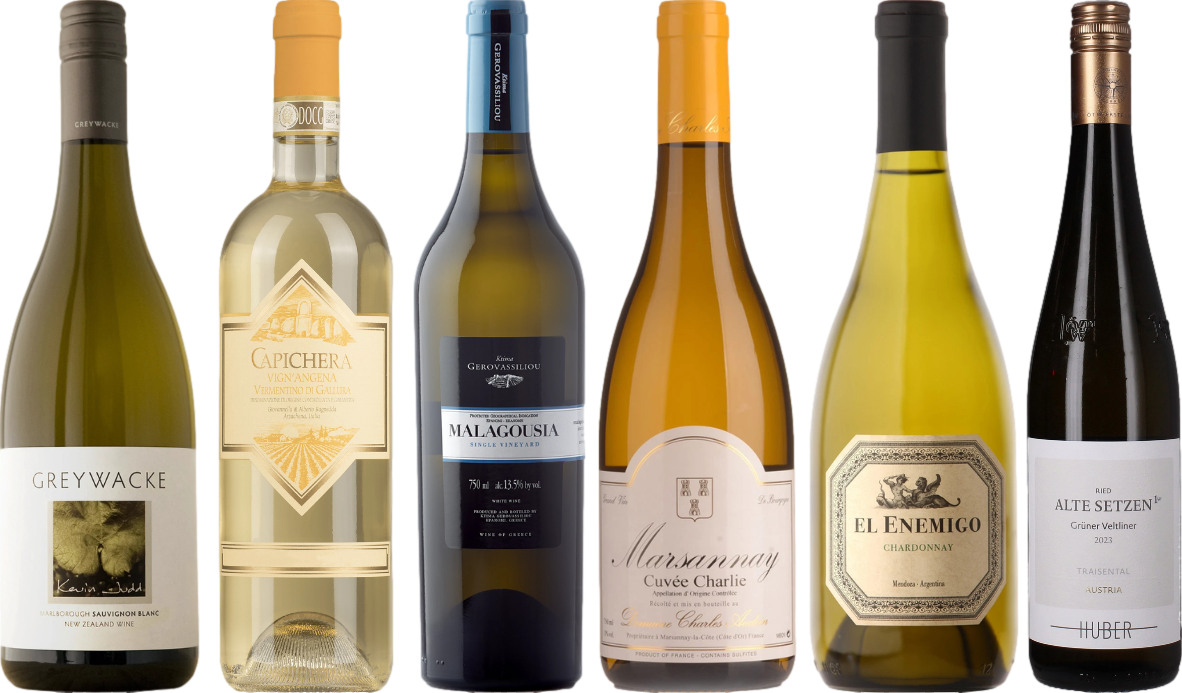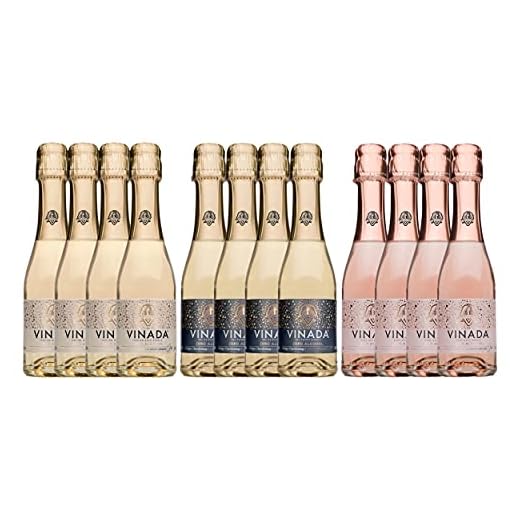



For those seeking remarkable expressions of white varietals, I recommend exploring the vibrant offerings from Portugal. Specifically, the Alvarinho from Vinho Verde stands out for its crisp acidity and refreshing citrus notes, making it a delightful companion to seafood dishes. This wine embodies the unique terroir, showcasing the region’s ability to produce wines that are both approachable and complex.
Another gem to consider is the Encruzado from the Dão region. This varietal displays an elegant balance between minerality and fruit, often revealing flavors of stone fruits and floral aromas. It pairs beautifully with grilled chicken or creamy pasta, elevating any meal with its layered profile.
Additionally, do not overlook the Arinto, known for its bright acidity and aging potential. This wine often features notes of green apple and citrus, making it a versatile choice for various cuisines. Whether enjoyed on its own or paired with dishes like sushi or salads, Arinto consistently impresses with its freshness and vibrancy.
Lastly, the Bical from Bairrada offers a unique character, often exhibiting a rich texture and flavors reminiscent of ripe pear and herbs. This wine can complement richer dishes, such as roasted vegetables or creamy cheeses, providing a delightful contrast that enhances the dining experience.
Exceptional Choices in Portuguese Whites
Consider trying Vinho Verde from the Minho region; its freshness and slight effervescence make it a delightful choice for warm days. The Alvarinho grape shines here, offering citrus and stone fruit notes. Another standout is the Douro Valley’s white blends, often featuring grape varieties like Gouveio and Rabigato, which result in wines with great complexity and mineral character.
From the Dão region, you should explore Encruzado. This variety produces elegant wines with floral aromas and a rich palate, perfect for pairing with seafood. The Bairrada region also presents superb options, particularly those made from the Bical grape, known for its vibrant acidity and ability to age gracefully.
For a unique experience, seek out wines from the Alentejo area. The blend of Antão Vaz with other indigenous grapes yields rich textures and tropical fruit flavors, making these selections versatile for various dishes. If you’re curious about the influence of terroir, the wines from Setúbal, especially Muscat of Setúbal, are a must-try for their aromatic profile and luscious sweetness.
Lastly, to maintain the quality of these wines, proper storage is key. If you’re looking for tips on maintaining your equipment while cleaning, you can check out this guide on how do i use universal cleaner in karcher pressure washer.
Top Regions for Portuguese White Wine Production
For exceptional selections, focus on the Douro Valley, renowned for its diverse microclimates. Here, indigenous grapes like Rabigato and Viosinho thrive, creating wines with remarkable acidity and minerality. Look for producers such as Quinta do Crasto and Niepoort; their offerings showcase the region’s potential beautifully.
Vinho Verde
This unique area in the Minho region produces refreshing, light-bodied varietals. Alvarinho stands out here, delivering zesty citrus flavors and a crisp finish. Seek out wines from producers like Anselmo Mendes and Soalheiro for an authentic taste of Vinho Verde.
Alentejo
Known for its warm climate, Alentejo yields fuller-bodied options. The region’s Antão Vaz grape is particularly noteworthy, offering rich tropical fruit notes and a creamy texture. Check out wines from Herdade do Esporão and Cortes de Cima for excellent representations of Alentejo’s character.
Key Grape Varieties in Portuguese White Wines
Albariño stands out with its vibrant acidity and floral notes, making it a fantastic choice for seafood pairings. Look for bottles from the Vinho Verde region, where this grape shines. Another remarkable varietal is Arinto, known for its mineral character and crispness, often found in the Lisboa and Alentejo regions. It offers great aging potential, enhancing complexity over time.
Encruzado deserves attention too; it’s a versatile grape predominantly from Dão. It combines floral aromas with stone fruit flavors, often exhibiting a creamy texture due to barrel aging. For a unique option, explore Assyrtiko, which, although originally from Greece, has found a home in the Douro Valley, showcasing citrus and saline qualities that pair beautifully with grilled dishes.
Another noteworthy variety is Verdelho, recognized for its rich texture and aromatic profile, often providing tropical fruit notes and herbal undertones. This grape can be found in the Madeira region, where it contributes to the island’s distinctive fortified wines. Lastly, don’t overlook Fernão Pires, celebrated for its exuberant fruitiness and floral characteristics, making it a delightful choice for lighter fare or as an aperitif.
Recommended Portuguese White Wines for Different Occasions
For seafood lovers, I suggest a bottle of Vinho Verde. This refreshing blend, often made from the Alvarinho grape, perfectly complements dishes like grilled fish or shellfish. Its bright acidity and slight effervescence make it an ideal pairing for a sunny day by the coast.
Celebratory Moments
When toasting special occasions, a well-chosen bottle of Bairrada’s sparkling wine, often crafted from the Baga grape, can elevate the experience. Its fine bubbles and complex flavors are fantastic with rich appetizers or a celebratory feast.
Casual Gatherings
For relaxed afternoons or casual gatherings, opt for a light and aromatic white from the Alentejo region. A blend featuring Antão Vaz or Arinto brings out fruity notes that pair well with charcuterie or light salads, creating an enjoyable atmosphere among friends.
How to Properly Pair Portuguese White Wines with Food
For seafood dishes, consider a refreshing Alvarinho. Its bright acidity and citrus notes complement the flavors of grilled fish and shellfish beautifully. Pair it with grilled sardines or a plate of oysters for an unforgettable dining experience.
If you’re serving poultry, especially with creamy sauces, opt for a rich Encruzado. This variety’s luscious texture and floral aromas harmonize well with dishes like roasted chicken or turkey with a creamy mushroom sauce.
Vegetarian Dishes
With vegetable-based meals, try a Verdejo. Its crispness and herbal qualities can enhance dishes like asparagus risotto or a fresh garden salad. The wine’s acidity cuts through the richness of creamy dressings.
Cheese Pairings
- For soft cheeses like Brie, a light and zesty Vinho Verde works wonders.
- Pair firm cheeses, such as aged Gouda, with a fuller-bodied wine like a complex Arinto.
- With blue cheese, a sweeter style like a late-harvest variety can balance the saltiness.
Spicy Asian cuisine pairs well with a fruity blend like a Douro white. The wine’s fruit-forward nature can mellow out the heat in dishes like Thai curry or Szechuan stir-fry.
Finally, for dessert, consider a luscious Muscat. Its sweetness complements fruit-based desserts like tarts or sorbets, creating a delightful conclusion to your meal.
Buying Tips for Discovering Quality Portuguese White Wines
Focus on reputable producers known for their craftsmanship. Look for wineries like Niepoort, Quinta da Aveleda, and Alvaro Castro, which consistently deliver exceptional offerings. Visiting local wine shops with knowledgeable staff can lead you to hidden gems and exclusive selections.
Understanding Classification
Familiarize yourself with classifications such as Vinho Verde, Dão, and Alentejo. Each region has unique characteristics that influence flavor profiles. Reading labels carefully will help identify these designations, guiding your purchasing decisions.
Price Points and Value
Explore various price ranges, as quality doesn’t always correlate with cost. Many excellent selections are available under $20. Look for limited releases or lesser-known producers that provide remarkable taste without breaking the bank.
| Price Range | Recommended Options |
|---|---|
| $10 – $20 | Vinho Verde from Aveleda |
| $20 – $30 | Dão from Quinta dos Roques |
| $30+ | Alentejo from Herdade do Esporão |
Consider joining a wine club that specializes in Iberian selections. This can expose you to a variety of styles and producers, enhancing your palate and knowledge. Additionally, attending tastings or wine festivals showcases these delightful products and allows for direct interaction with producers.







